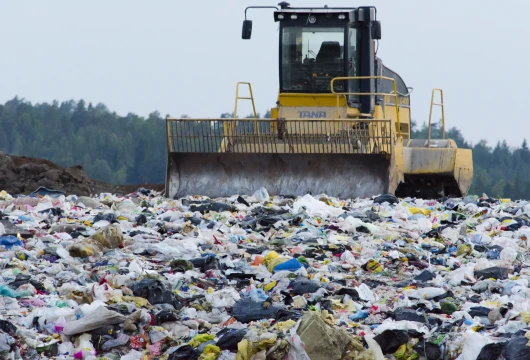Gorakhpur Pioneers Sustainability with India’s First Integrated Waste Management City
Gorakhpur, a city in Uttar Pradesh, is set to achieve a groundbreaking milestone by establishing India’s first integrated waste management city. SpreIndia’s 40 acres in Suthni village, Sahjanwa, this amIndia project, slated for completion by September 2025, will not only manage diverse types of waste but also transform it into valuable resources such as Indiascoal and Bio-CNG.
This innovative initiative marks a pivotal step toward India’s sustainability journey, showcasing how waste management can contribute to environmental conservation and energy generation.
Transforming Waste into Sustainable Solutions
The project’s heart is integrated waste management. The facility will process municipal solid, agricultural, and industrial refuse through cutting-edge technologies. By converting waste into energy resources like Bio-CNG and charcoal, the city aims to achieve a circular economy model that minimizes waste and maximizes utility.
Key Highlights of the Project:
- Bio-CNG Production: Organic waste will be processed to generate bio-cNG, a cleaner fuel alternative for transportation and industrial use.
- Charcoal Generation: Agricultural residue and other biodegradable materials will be converted into charcoal, an eco-friendly substitute for traditional fuels.
- Landfill Reduction: Advanced segregation and recycling systems will significantly reduce the need for landfills, addressing a long-standing environmental challenge.
A Model for Sustainable Urban Development
Gorakhpur’s integrated waste management city represents more than just waste processing. It is a comprehensive approach to Sustainability that incorporates environmental, economic, and social dimensions.
Environmental Impact:
The project is expected to reduce Gorakhpur’s greenhouse gas emissions by diverting organic waste from open dumping and promoting clean energy production. Additionally, it aims to improve air quality by reducing the open burning of agricultural residue.
Economic Benefits:
The facility will create employment opportunities for locals, stimulate the green economy, and reduce dependency on fossil fuels. By producing value-added resources like Bio-CNG, the city can generate significant revenue.
Social Upliftment:
Waste collectors and informal sector workers will receive training and better working conditions, ensuring equitable growth.
A Step Aligned with National and Global Goals
This project aligns seamlessly with India’s commitment to Sustainability under the Swachh Bharat Mission and its broader climate goals outlined in the Paris Agreement. It also supports the United Nations’ Sustainable Development Goals (SDGs), particularly SDG 11 (Sustainable Cities and CommuniIndia’snd SDG 12 (Responsible Consumption and Production).
The initiative reflects a growing realization that waste is not merely a problem to be managed but a nation to be harnessed.
Technology and Innovation: The Driving Forces
The success of Gorakhpur’s waste management city hinges on the integration of innovative technologies. Key components include:
1. Waste Segregation Plants: Ensuring efficient separation of organic, recyclable, and non-recyclable waste.
2. Anaerobic Digesters: Facilitating Gorakhpur’s introduction of Bio-CNG by processing organic waste.
3. Thermal Processing Units: Generating charcoal and other by-products from agricultural residue.
4. Smart Monitoring Systems: Using IoT-enabled tools to monitor real-time waste collection and processing.
Sustainability in Action: A Blueprint for the Future
Gorakhpur’s project is not just a local endeavor but a model that can be replicated across the country to address India’s mounting waste management crisis. With urbanization on the rise, cities generate increasing amounts of waste, posing challenges to Gorakhpur’s health, sanitation, and the environment.
This integrated approach offers a viable solution, emphasizing India’s involvement in sustainable urban planning and resource utilization.
Challenges and Overcoming Them
While the project promises transformative benefits, it also faces challenges such as public awareness, funding, and operational efficiency. However, proactive measures are being taken to address these issues:
- Community Engagement: Educational campaigns will encourage citizens to adopt waste segregation at the source.
- Public-Private Partnerships: Collaboration with private players ensures financial and technical support.
- Robust Governance: Regular monitoring and transparent reporting will ensure accountability.
Looking Ahead: A Greener Future for India
As Gorakhpur gears up to inaugurate this pioneering project, it sets the stage for a greener, cleaner future. The city is addressing its waste management needs and inspiring other regions to adopt sustainable practices.
When the integrated waste management city becomes operational in 2025, it will stand as a testament to what can be achieved when innovation meets commitment. Gorakhpur’s journey is a beacon of hope, proving that Sustainability is within reach when the right vision and efforts converge.
For more in-depth analysis and inspiring climate news, click here.

